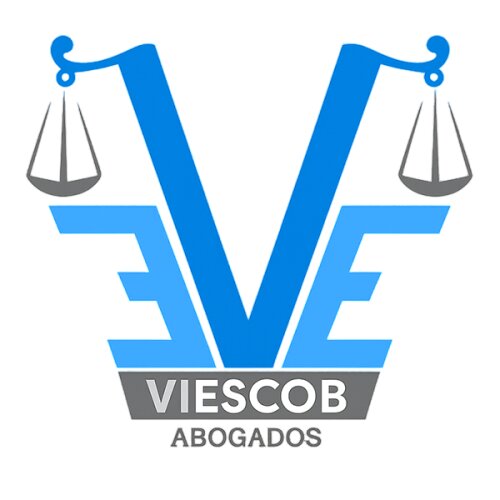Best Child Visitation Lawyers in Providencia
Share your needs with us, get contacted by law firms.
Free. Takes 2 min.
Free Guide to Hiring a Family Lawyer
List of the best lawyers in Providencia, Chile
About Child Visitation Law in Providencia, Chile
Child visitation, known in Chile as "régimen de visitas" or "relación directa y regular," refers to the right of a parent or a significant third party to spend time with a child when they do not reside together. In Providencia, as in the rest of Chile, these issues are addressed within the framework of family law, and the primary focus is always the best interest and well-being of the child. The law recognizes that maintaining a relationship with both parents is essential for the balanced development of minors, with few exceptions made in cases where visitation could be harmful to the child.
Why You May Need a Lawyer
Engaging a lawyer experienced in child visitation matters can be crucial in several situations. If you are facing the breakdown of a marriage or partnership and need to establish a formal visitation schedule, legal guidance can help ensure a fair and enforceable arrangement. People often require legal support when there are disagreements about the terms of visitation, if one party refuses access, or if there are concerns regarding the safety and wellbeing of the child during visits. Additionally, changes in circumstances, such as relocation or changes in employment schedules, may necessitate a modification of the original visitation agreement, a process that is best handled with proper legal counsel to protect your rights and interests.
Local Laws Overview
In Providencia, child visitation law is governed mainly by the Chilean Civil Code and the Ley de Tribunales de Familia. The child's best interests always take precedence, and judges are empowered to set or modify visitation schedules accordingly. Either parent or a significant third party with a close relationship to the child can request a visitation order. If parents can agree amicably, their proposed agreement is generally validated by the Family Court, provided it aligns with the child's well-being. When consensus is not possible, the court will make a determination based on the specific circumstances. Violations of court-ordered visitation can lead to legal consequences, including fines or restrictions.
Frequently Asked Questions
What does child visitation mean in Providencia, Chile?
It refers to the right of a non-custodial parent or close relative to maintain regular and direct contact with a child, as ordered or approved by a Family Court.
Who can request visitation rights?
Usually, non-custodial parents request visitation, but grandparents or other relatives with a strong bond to the child may also petition the court in specific scenarios.
How is a visitation schedule established?
If both parents agree, they can present an arrangement to the Family Court for approval. In case of disagreement, the court will establish a schedule after reviewing the circumstances.
Can visitation rights be denied?
Yes, the court may deny or restrict visitation if it determines that such contact would be harmful to the child's physical or emotional health.
What happens if a parent violates a visitation order?
Failure to comply with a court-ordered visitation schedule can result in sanctions, including fines or changes to custody or visitation terms.
Can a visitation agreement be modified?
Yes, any significant change in circumstances (such as relocation or health issues) may justify a request to modify the visitation order through the Family Court.
Does the child have a say in visitation decisions?
Depending on the child's age and maturity, the court may consider the child's views, especially if they are of sufficient age and capacity to express a reasoned opinion.
Is supervised visitation possible?
Supervised visitation may be ordered if there are concerns regarding the safety or wellbeing of the child during visits.
Is legal representation mandatory in visitation cases?
While not legally required, having a lawyer is strongly recommended to ensure your rights are protected and to navigate the complexities of Family Court procedures.
How long does it take to resolve a visitation dispute in Providencia?
The duration varies based on whether there is an agreement or a contested dispute. Simple cases can be resolved in a few weeks, while complex or contentious cases may take several months.
Additional Resources
People seeking legal advice regarding child visitation in Providencia can consult a variety of useful resources. The Tribunal de Familia de Providencia (Providencia Family Court) is the primary authority for hearing and resolving visitation matters. The Corporación de Asistencia Judicial provides free or low-cost legal assistance to those who qualify. Local family mediation centers can also help parties reach a mutual agreement outside of court. Additionally, the Defensoría de la Niñez (Children's Ombudsman) offers resources and guidance to protect children's rights and interests.
Next Steps
If you require assistance with a child visitation issue in Providencia, consider taking the following steps. First, gather all relevant documents such as birth certificates, existing court orders, and written communication relevant to the visitation dispute. Next, consult with a qualified family law attorney who can evaluate your case and represent your interests. If you cannot afford a private lawyer, contact the Corporación de Asistencia Judicial for possible legal aid. Mediation is often encouraged as a first step before going to court, as it can help facilitate meaningful agreements while reducing conflict. If mediation is not successful or appropriate, your lawyer can help you initiate or respond to a visitation petition through the Family Court. Throughout the process, always prioritize the best interests of your child.
Lawzana helps you find the best lawyers and law firms in Providencia through a curated and pre-screened list of qualified legal professionals. Our platform offers rankings and detailed profiles of attorneys and law firms, allowing you to compare based on practice areas, including Child Visitation, experience, and client feedback.
Each profile includes a description of the firm's areas of practice, client reviews, team members and partners, year of establishment, spoken languages, office locations, contact information, social media presence, and any published articles or resources. Most firms on our platform speak English and are experienced in both local and international legal matters.
Get a quote from top-rated law firms in Providencia, Chile — quickly, securely, and without unnecessary hassle.
Disclaimer:
The information provided on this page is for general informational purposes only and does not constitute legal advice. While we strive to ensure the accuracy and relevance of the content, legal information may change over time, and interpretations of the law can vary. You should always consult with a qualified legal professional for advice specific to your situation.
We disclaim all liability for actions taken or not taken based on the content of this page. If you believe any information is incorrect or outdated, please contact us, and we will review and update it where appropriate.











